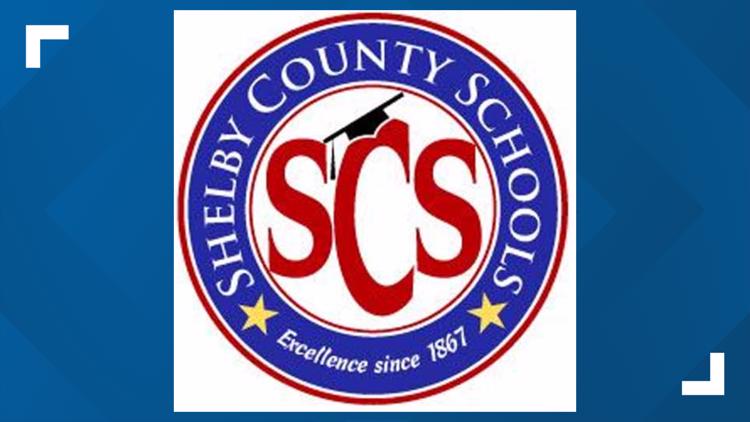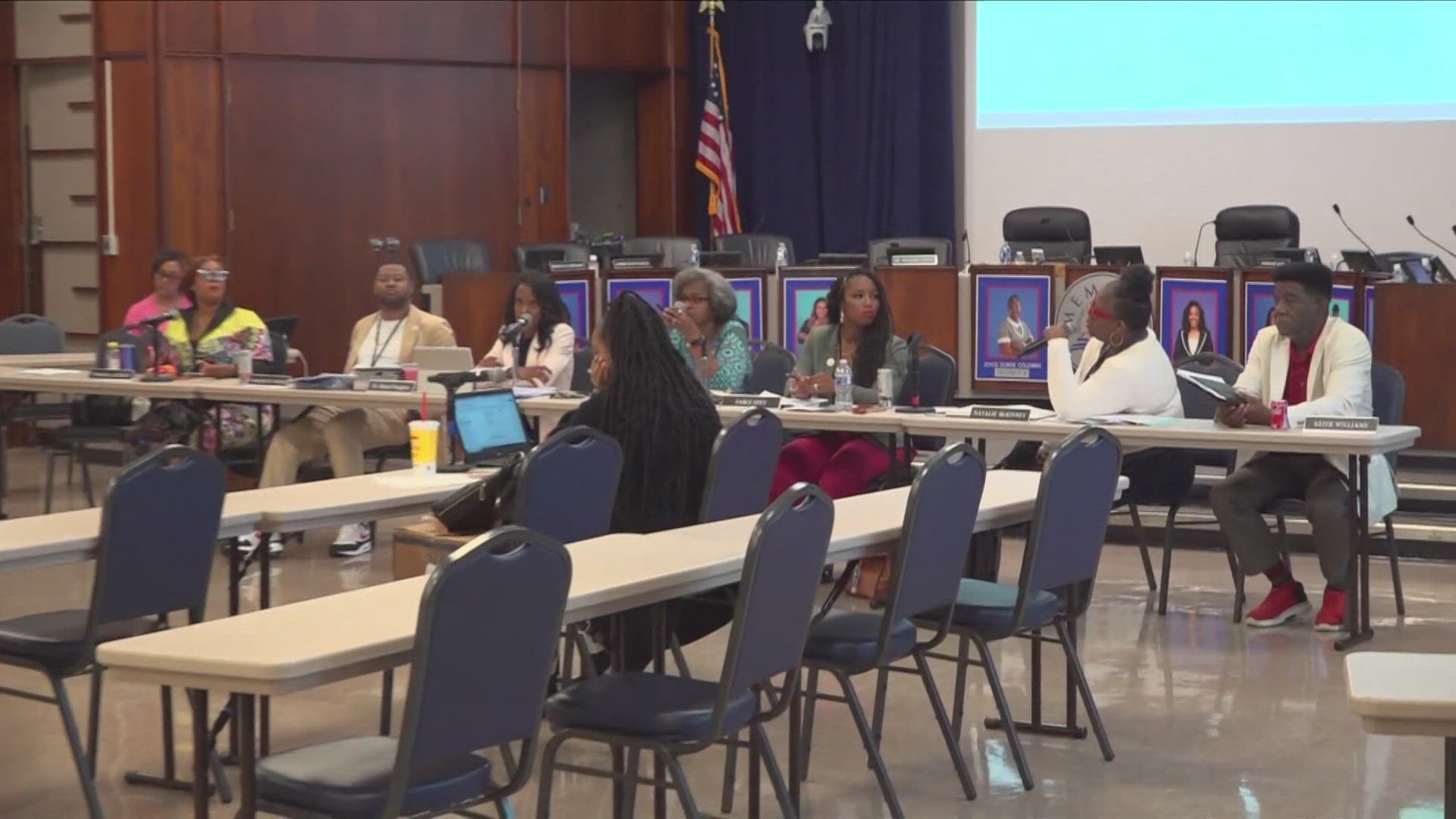MEMPHIS, Tenn. — Tennessee is getting the rest of the $2 billion from the American Rescue Plan for Education.
$830-million more federal dollars will be used to safely reopen schools, keep them safe, and help children impacted by the COVID-19 pandemic.
Shelby County Schools will get about $503 million of that money, marking the largest allocation of funds in the state.
The school system plans to use the money for helping students with learning loss, facility repairs, and constructing at least three new schools.
You can read more from the U.S. Department of Education below:
Today, the U.S. Department of Education (Department) announced the approval of Tennessee’s American Rescue Plan Elementary and Secondary School Emergency Relief (ARP ESSER) plan and distributed remaining ARP ESSER funds to them. Tennessee’s plan details how the state is using and plans to use ARP ESSER funds to safely reopen and sustain the safe operation of schools and equitably expand opportunity for students who need it most, particularly those most impacted by the COVID-19 pandemic.
Earlier this year, the Department distributed two thirds of the ARP ESSER funds, totaling $81 billion, to 50 states and the District of Columbia. The remaining third of the funding to states will be made available once state plans are approved. Tennessee is receiving more than $2 billion total in ARP ESSER funds, and today’s approval of their plan will result in the release of the final $830 million. Additionally, the Department approved plans for Oregon, Oklahoma, West Virginia, and Ohio. Last week, the Department approved the plans for six states and the District of Columbia.
“I am excited to announce approval of Tennessee’s plan,” said U.S. Secretary of Education Miguel Cardona. “It is heartening to see, reflected in these state plans, the ways in which states are thinking deeply about how to use American Rescue Plan funds to continue to provide critical support to schools and communities, particularly as we move into the summer and look ahead to the upcoming academic year. The approval of these plans enables states to receive vital, additional American Rescue Plan funds to quickly and safely reopen schools for full-time, in-person learning; meet students’ academic, social, emotional, and mental health needs; and address disparities in access to educational opportunity that were exacerbated by the coronavirus pandemic. The state plans that have been submitted to the Department lay the groundwork for the ways in which an unprecedented infusion of federal resources will be used to address the urgent needs of America’s children and build back better.”
“Tennessee’s ARP ESSER plan prioritizes strategic, student-centered investments to help accelerate learning, and we are proud to receive approval on our plan from the U.S. Department of Education,” said Tennessee Education Commissioner Penny Schwinn. “In Tennessee, we are maximizing over $4 billion in K-12 funding to provide all students with essential academic supports like statewide tutoring and early reading resources, and to strengthen programs that support student readiness and our educators. With additional policy and funding investments at the state level, Tennessee is dedicated to ensuring the best for all students.”
“I was proud to support, along with President Biden and Vice President Harris, getting this money to Tennessee,” said Rep. Jim Cooper. “Many low-income and rural students were disproportionately affected by remote learning during the COVID-19 pandemic just because they had no access—or no reliable access—to the internet.”
The ARP ESSER state plans approved by the Department today, including Tennessee, show how states are using federal pandemic resources to support safe in-person instruction and meet the social, emotional, mental health, and academic needs of students—with a focus on the students most impacted by the pandemic. For example:
- Addressing the Academic Impact of Lost Instructional Time: The Tennessee Department of Education (TDOE) will use ARP ESSER funds to support high-dosage tutoring using a statewide tutoring model called Tennessee Accelerating Literacy and Learning Corps (TN ALL Corps). This model will span the next three years and will provide tutor training and certification, grade-level specific content, high-dosage tutoring, significant guidance and tutoring resources, and a directory of TDOE-reviewed providers. TDOE will offer districts the opportunity to apply for matching grants to fund TN ALL Corps, as well as offer matching grants for community partners to help provide academic acceleration supports for students. TDOE also will continue to invest in reading and early literacy through its statewide Reading360 initiative, launched earlier this year, directing a suite of supports and resources to boost third-grade reading proficiency.
- Investing in Summer Learning and Expanded Afterschool Programs: Ensuring students and families had opportunities to extend learning beyond classrooms, TDOE developed at-home learning resources and materials in partnerships with the Public Broadcasting Service (PBS) and the Tennessee STEM Innovation Network (TSIN) that continue today, and recently made available free Reading360 decodable readers for families with young children to focus on strengthening early reading skills. To support new statewide summer programming and tutoring supports for students, TDOE will provide resources for instruction in summer learning camps as well as district and community partner grants to support high dosage tutoring models.
A total of 40 states have submitted their ARP ESSER state plans to the Department. The Department is reviewing the plans expeditiously and is in contact with states to ensure their plans meet all necessary requirements in order to access the remaining funds, as outlined in the ARP. The Department also is in contact with states that have not yet submitted plans, the vast majority of which are due to state board of education or legislative review requirements.
The distribution of ARP ESSER funds is part of the Department’s broader effort to support students and districts as they work to reengage students impacted by the pandemic, address inequities exacerbated by COVID-19, and build our education system back better than before. In addition to providing $130 billion for K-12 education in the ARP to support the safe reopening of K-12 schools and meet the needs of all students, the Biden-Harris Administration also has:
- Released three volumes of the COVID-19 Handbook.
- Held a National Safe School Reopening Summit.
- Prioritized the vaccination of educators, school staff and child care workers. As of the end of May, an estimated 84% of teachers and school staff were fully vaccinated.
- Provided $10 billion in funding for COVID-19 testing for PreK-12 educators, staff, and students.
- Launched a series of Equity Summits focused on addressing inequities that existed before but were made worse by the pandemic.
- Released a report on the disparate impacts of COVID-19 on underserved communities.
- Developed a Safer Schools and Campuses Best Practices Clearinghouse elevating hundreds of best practices to support schools’ efforts to reopen safely and address the impacts of COVID-19 on students, educators, and communities.
In addition to the actions the Biden-Harris Administration has taken to reopen schools, the President has proposed critical investments through his Build Back Better agenda that will enable schools to rebuild stronger than they were before the pandemic, such as investing billions to build a diverse educator workforce, expand access to pre-K to all families, and invest in school infrastructure, among other provisions.



